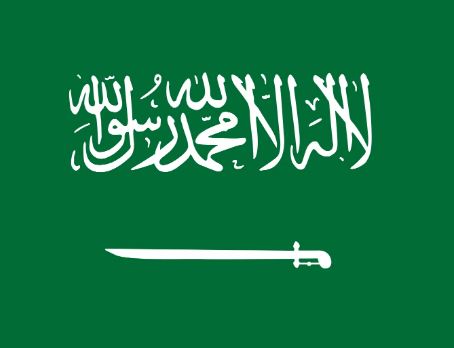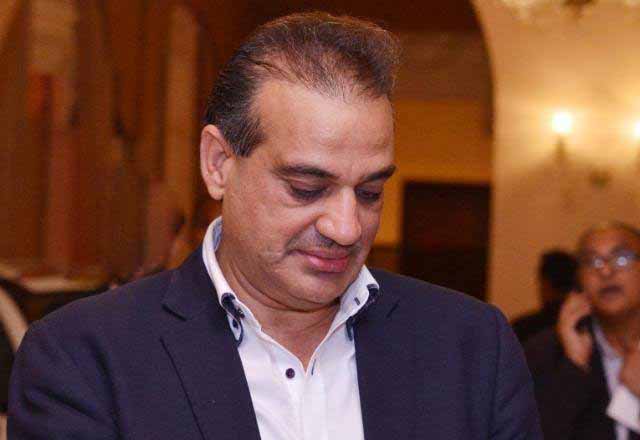Analysis
Ansar M Bhatti
Saudi-Israel détente – at what cost?
In a historic and groundbreaking development, Saudi Arabia has appointed Ambassador Nayef al-Sudairi as the Kingdom’s first-ever envoy to Palestine.
Ambassador Nayef al-Sudairi wasted no time upon his arrival in Palestine, boldly affirming Saudi Arabia’s commitment to the establishment of a sovereign Palestinian state with East Jerusalem as its rightful capital.
In a series of diplomatic exchanges, Palestinian officials engaged in constructive discussions with their Saudi counterparts. As part of the Kingdom’s commitment to recognizing Israel, both sides have to reach a significant understanding.
Saudi-Israel détente – at what cost?
Israel will have to halt the construction of new settlements, empower Palestinians with greater control over security and construction activities in the West Bank, endorse full Palestinian membership in the United Nations, and provide consent for the establishment of a Palestine Liberation Organization office in Washington and a US consulate in East Jerusalem.
Saudi Crown Prince Mohammed bin Salman (MBS) has made it clear that Saudi Arabia considers the establishment of an independent Palestinian state to be a crucial prerequisite for recognizing Israel.
Moreover, MBS appears to seek specific support from the United States for Saudi Arabia’s efforts to regain ties with Israel. There are five key areas in which the Saudis hope for proactive actions from both the US and Israel.
Saudi Arabia has consistently advocated for the establishment of an independent Palestinian state with Al-Quds (Jerusalem) as its capital.
Saudi-Israel détente – at what cost?
While there may be some skepticism about the seriousness of Saudi Arabia’s commitment to this cause, the majority view is that Saudi Crown Prince Mohammed bin Salman (MBS) is unlikely to grant Israel’s demands without receiving substantial assurances in return.
Also Read: Elections in January: the expected political scenarios
Saudi Arabia has chosen to approach the issue of recognizing Israel with caution, unlike the United Arab Emirates (UAE) and Bahrain, which swiftly established diplomatic relations with Israel.
Consequently, both the UAE and Bahrain have seen an influx of Jewish residents, many of whom have acquired UAE residency status.
It is believed that some members of the Jewish community in these countries aim to exert influence on their respective political landscapes, reflecting a strategy that has been observed in various places. That is how Jews operate everywhere.
For example in Ukraine the Prime Minister Denys Shmyhal and other key officials happen to be the Jews and thus wield potential control over government affairs.
Saudi-Israel détente – at what cost?
Saudi Arabia is committed to enhancing its defense capabilities and reducing dependency on allied nations like Pakistan for its defense requirements.
Crown Prince Mohammed bin Salman (MBS) envisions a robust command and control system operated by the Saudi armed forces.
To realize this objective, Saudi Arabia aims to establish a comprehensive defense pact with the United States while also seeking the autonomy to develop its weapons without external pressures, including from the United States and Israel.
Saudi-Israel détente – at what cost?
Saudi Arabia is actively pursuing a strategic defense partnership with the United States because it earnestly believes that such a partnership will bolster Saudi Arabia’s defense capabilities through access to advanced military technology, intelligence sharing, and training programs.
This collaboration will ensure a more secure and self-reliant Saudi Arabia. Saudi Arabia recognizes the importance of having its own weapons development facilities.
This approach will enable the nation to have greater control over its defense technology and reduce reliance on external suppliers. It is committed to ensuring that its weapons development program operates independently and free from external influences.
Saudi-Israel détente – at what cost?
Historically, Saudi Arabia has cultivated strong diplomatic ties with Republican administrations in the United States.
However, its relations with Democratic governments have often encountered challenges. It is reasonable to assume that the Saudi leadership closely monitors the US presidential elections, as the outcome can significantly impact their foreign policy.
Should the Republicans secure the presidency, Saudi Arabia may continue their cordial relationship, maintaining the status quo.

However, if the Democrats maintain control of the White House, the Saudi leadership may find it necessary to reassess and adapt their diplomatic priorities.
In essence, Saudi Arabia’s foreign policy is responsive to the changing dynamics of US politics, and they are prepared to adjust their strategies to ensure productive relations with whichever party holds power in Washington.
Mohammad Bin Salman (MBS) is committed to fostering peace and reducing animosities in the Middle East by 2030.
One of the most significant steps towards achieving this goal is establishing peaceful relations with long-time arch-rival Iran. Similarly, pursuing a truce in Yemen is a top priority for MBS.
Peace with Iraq, Syria, Libya has already been achieved. Furthermore, the potential easing of tensions with Israel could reshape the entire political landscape of the Middle East.
Under MBS’s leadership, Saudi Arabia aspires to become a prominent figure in the Muslim Ummah. The country has recently joined the BRICS alliance, adding to its already substantial involvement in international forums such as the G7, OIC, G20, and the imminent G8. If Saudi Arabia can successfully secure peace with Israel, Mohammad Bin Salman is poised to emerge as the undisputed leader within the Muslim bloc, solidifying the nation’s position on the global stage.
Regarding the issue of Israeli recognition by the two major Muslim powers, Indonesia and Pakistan, there have been reports indicating that both countries have faced significant pressure to improve their relations with Israel. Recently, high-level Indonesian officials engaged in several crucial meetings with Palestinian representatives to discuss the nature of the pressure exerted on them and the incentives offered if Indonesia were to recognize Israel. However, it’s worth noting that the current Indonesian government under President Joko Widodo has firmly rejected any such move.
Looking ahead, despite the upcoming Presidential elections scheduled for February 2024, many analysts believe that Indonesia’s stance on the Israel-Palestine issue is unlikely to undergo a substantial change.
Pakistan too may not change its stand on this issue no matter which political party forms government as a result of the upcoming general elections. Pakistan is likely to recognize Israel only when an Independent Palestine state is established with Al Qadus as its capital. Pakistan has traditionally been a supporter of the Palestinian cause and a vocal advocate for their rights. This support is not tied to any particular political party but reflects a broader national consensus. The Palestinian issue holds significant importance in the hearts and minds of the Pakistani people.
In conclusion, while political parties may change in Pakistan, the country’s stance on recognizing Israel is deeply rooted in historical, geopolitical, and national considerations. It is likely to remain unchanged until progress is made towards the establishment of an independent Palestinian state with East Jerusalem as its capital.
The writer is the Editor Daily Islamabad POST, Centreline magazine and Diplomatic News Agency

















